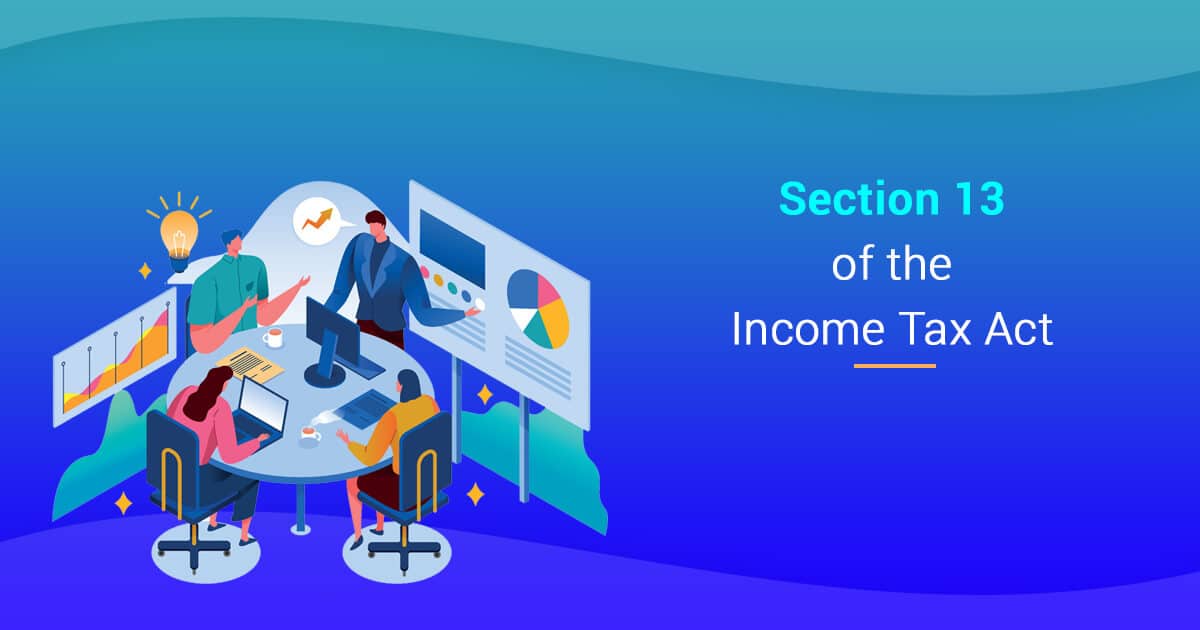Section 13 of the Income Tax Act: Conditions for Denial of Tax Exemption for Trusts and Institutions
Introduction
Section 13 of the Income Tax Act, 1961, plays a crucial role in determining the tax-exempt status of income for charitable and religious trusts and institutions. While Sections 11 and 12 provide tax exemptions for certain incomes, Section 13 outlines specific scenarios where these exemptions do not apply. Understanding these conditions is essential for trustees, managers, and donors to ensure compliance and avoid any legal complications. This blog will provide a comprehensive overview of Section 13, highlighting its key provisions and implications.
Overview of Section 13
Section 13 specifies the conditions under which the income of a trust or institution, otherwise eligible for tax exemption under Sections 11 and 12, is included in the total taxable income. The section is divided into various sub-sections, each detailing different scenarios where tax exemption is denied.
Key Provisions of Section 13
1. Private Religious Trusts (Sub-section 1(a))
Any part of the income from property held under a trust for private religious purposes, which does not benefit the public, is excluded from tax exemption. This ensures that only trusts serving public religious purposes enjoy tax benefits.
2. Trusts for Specific Communities (Sub-section 1(b))
Income of a charitable trust or institution established after the commencement of the Act, created for the benefit of a particular religious community or caste, is excluded from tax exemption. This provision prevents trusts from being used to serve only specific groups rather than the general public.
3. Benefit to Specified Persons (Sub-section 1(c))
Income of a trust or institution where any part of the income or property is used directly or indirectly for the benefit of specified persons referred to in Sub-section 3 is excluded from tax exemption. This applies to both trusts and institutions created before and after the Act’s commencement, with certain exceptions.
Specific Cases Under Sub-section 1(c):
Established After the Act:
Trusts or institutions created after the commencement of the Act, where any part of such income enures for the benefit of any specified person.
Use or Application of Property:
Income or property of the trust used or applied directly or indirectly for the benefit of specified persons.
Compliance with Mandatory Terms:
Provisions do not apply to use or application compliant with mandatory terms of trusts established before the Act.

4. Prohibited Investments (Sub-section 1(d))
If the funds of the trust or institution are invested or deposited in forms not specified in Sub-section 5 of Section 11 after specified dates, such income is excluded from tax exemption. This ensures that the funds are invested in safe and permissible avenues.
Examples of Prohibited Investments:
- Funds invested in companies not specified under Section 11(5).
- Funds continuing to be invested in prohibited forms beyond the allowed date.
Conditions for Deemed Benefit (Sub-section 2)
The income or property of a trust or institution is deemed to have been used for the benefit of persons referred to in Sub-section 3 if:
- The trust lends money without adequate security or interest.
- The trust’s property is made available for use without adequate compensation.
- Excessive salary or allowance is paid to such persons.
- Services are provided without adequate remuneration.
- Assets are purchased from or sold to such persons for more or less than adequate consideration.
- Income or property is diverted to such persons.
- Funds are invested in concerns where such persons have a substantial interest.
Specified Persons (Sub-section 3)
Persons referred to in Sub-section 3 include:
- Author of the trust or founder of the institution.
- Persons making substantial contributions to the trust or institution.
- Members of the family of such author, founder, or contributor.
- Trustees or managers of the trust.
- Relatives of the aforementioned persons.
- Concerns in which these persons have a substantial interest.
Exceptions and Special Provisions
Pre-Act Trusts:
Certain provisions do not apply to trusts established before the Act’s commencement if the use or application of income is compliant with mandatory terms.
Special Conditions (Sub-sections 4, 5, and 6):
Specific conditions and exceptions are provided for trusts and institutions concerning investments and the extent of benefits derived by specified persons.
Anonymous Donations (Sub-section 7):
Income from anonymous donations is not excluded from total income and is taxed under Section 115BBC.
Income Inclusion (Sub-sections 9 and 10):
Income is included in total income if certain filing requirements are not met or if specific conditions are violated.
Definitions and Clarifications (Explanations)
Relative:
The term “relative” is defined in detail for the purposes of this section.
Substantial Interest:
Criteria to determine substantial interest in a concern are provided.
Special Cases:
Trusts or institutions for Scheduled Castes, Scheduled Tribes, women, and children are not considered as created for the benefit of a religious community or caste.
Frequently Asked Questions (FAQ)
Q1: What is the primary purpose of Section 13 of the Income Tax Act?
A1: Section 13 aims to outline specific conditions under which the tax exemptions provided under Sections 11 and 12 for trusts and institutions are denied, ensuring that these exemptions are not misused.
Q2: Can a private religious trust avail tax exemptions under Section 11?
A2: No, a private religious trust that does not benefit the public cannot avail tax exemptions under Section 11 as per Section 13(1)(a).
Q3: Are trusts established for specific religious communities eligible for tax exemptions?
A3: Trusts established for the benefit of specific religious communities or castes after the commencement of the Act are not eligible for tax exemptions under Section 11, as stated in Section 13(1)(b).
Q4: What happens if a trust invests its funds in prohibited forms?
A4: If a trust invests its funds in forms not specified in Sub-section 5 of Section 11, its income will be excluded from tax exemption as per Section 13(1)(d).
Q5: Who are considered “specified persons” under Section 13?
A5: Specified persons include the author of the trust, founders, substantial contributors, their family members, trustees, managers, and any concerns in which these individuals have a substantial interest, as detailed in Section 13(3).
Q6: Are anonymous donations exempt from tax?
A6: No, anonymous donations are not exempt from tax and are taxed under Section 115BBC, as mentioned in Section 13(7).
Q7: What are the conditions for deemed benefit to specified persons?
A7: Conditions for deemed benefit include lending money without adequate security, providing property for use without adequate compensation, paying excessive salaries, and more, as outlined in Section 13(2).
Q8: What is the significance of the explanations provided in Section 13?
A8: The explanations clarify definitions such as “relative” and “substantial interest,” ensuring precise understanding and compliance with the provisions of Section 13.
Conclusion
Section 13 of the Income Tax Act is vital for ensuring that the tax exemptions provided under Sections 11 and 12 are not misused. By setting clear conditions and limitations, this section helps maintain the integrity and purpose of charitable and religious trusts and institutions. Trustees and donors must be aware of these provisions to ensure compliance and avoid legal complications.
For more detailed information on other sections of the Income Tax Act and how they impact your tax planning and compliance, visit SmartTaxSaver. Stay informed and make the most of the tax benefits available to you while adhering to legal requirements.


Leave a Reply